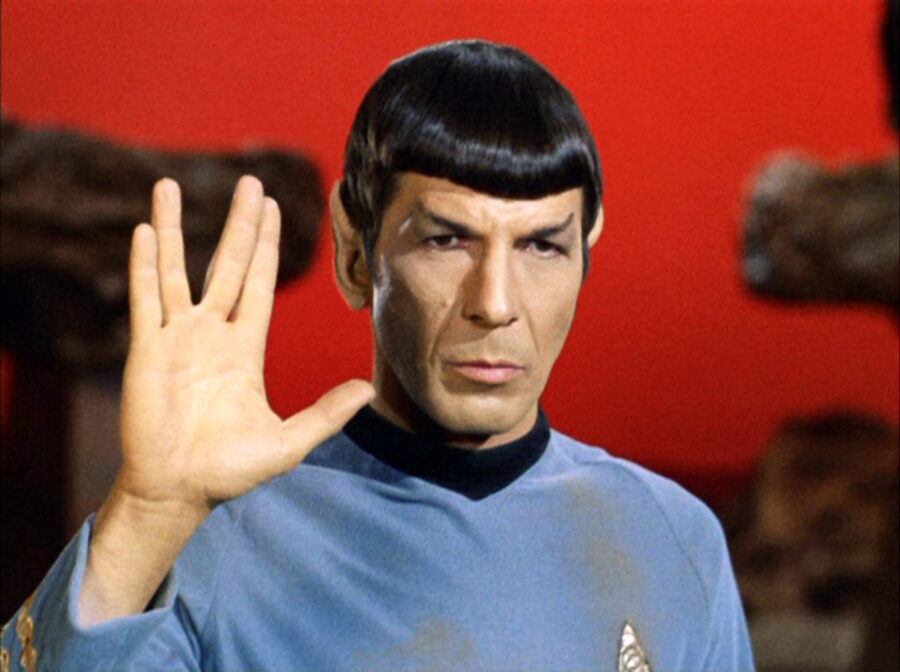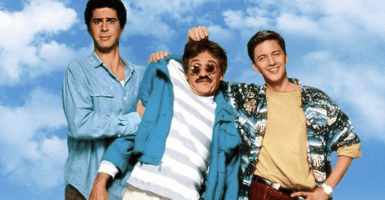The Most Iconic Star Trek Character Was Almost Cut For Being Satanic And Too Scary For Kids
NBC almost removed Spock from Star Trek because his pointy ears reminded executives of Satan.

Long before the Satanic Panic of the 1980s, there was one character whose presence was called into question for conjuring up devilish imagery in the 1960s. According to Fact Retriever, the scare came from the early production phases of Star Trek: The Original Series, and the character in question was the beloved Vulcan, Spock. Though Leonard Nimoy’s career has lived long and prospered throughout the decades before his passing in 2015, NBC originally wanted to cut his character, or at the very least get rid of the pointy ears, because they were worried about the satanic appearance.
Luckily, Gene Roddenberry stood firm on his vision for the original run of Star Trek because Spock ended up becoming not only a beloved character but a household name as well. It’s funny to think about in 2023 because pointy ears seem like a far cry from devil horns, but leave it to network executives to want to protect their properties from potential backlash for a perceived flirt with the devil. And as Spock went through the usual motions of character development, it’s evident that his moral code has not been lifted from the Satanic Bible.
The science fiction genre is no stranger to using religious imagery to drive a story along; franchises often borrow pieces from Christianity, Judaism, and Eastern religions to create their own fictionalized version of morality and philosophy. And while Star Trek is no exception to this rule, Spock’s background is a little more complicated than that. Though it’s true that Nimoy has gone on record stating that he used his Jewish heritage as inspiration for his Spock character, including his iconic Vulcan hand salutation, Spock himself rarely speaks of religion in the series.

In Star Trek, Spock is known for his use of sound logic and for sacrificing himself for the greater good in many cases. After all, 1982’s The Wrath of Khan is responsible for one of Spock’s most iconic lines, “logic clearly dictates that the needs of the many outweigh the needs of the few.” 1984’s The Search for Spock finds Spock in a transitional phase where he’s perceived as dead by the Enterprise crew, but we later find out that his soul and body survived separately, and they’re able to save him.
At this point in time, it’s hard to imagine Star Trek and its many spinoffs without Spock helping lay out the groundwork in the original series. And with the privilege of hindsight, it’s hard to see how such an iconic, adored, and selfless character could be associated with the devil. We can’t fault the NBC executives for potentially taking Spock out of the equation, however, because if there was legitimate concern over the Vulcan’s likeness, then they were simply doing their due diligence by expressing their concern to Roddenberry.
Luckily for us, Roddenberry stuck to his phasers (read: guns), and Star Trek’s decades-long legacy includes Spock, pointy ears, and all. Though Nimoy is no longer with us in this plane of existence, we’ve seen excellent portrayals of his iconic Spock character by Zachary Quinto in the Star Trek movie reboots (Star Trek, Star Trek Into Darkness, Star Trek Beyond), and Ethan Peck in season 2 of Star Trek: Discovery. Who knows what kind of future Spock will see in future iterations of Star Trek, but we’re so glad that our favorite character has been able to live long and prosper rather than meet his fate on the cutting room floor.












